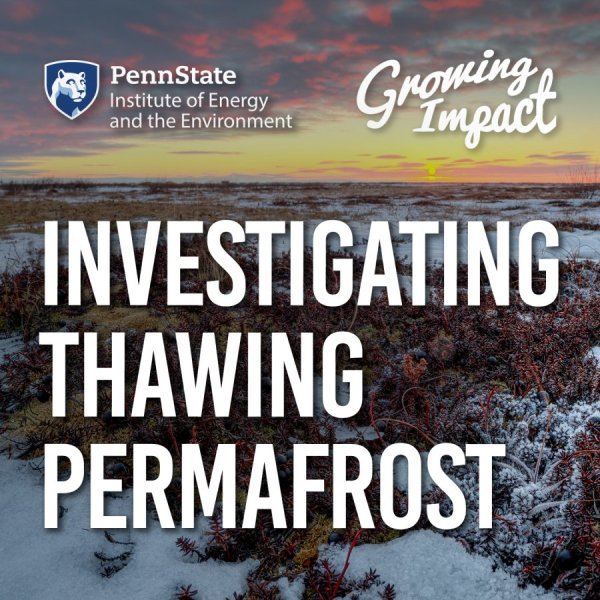Facing a new threat: State's dairy industry braces for avian influenza
| altoonamirror.com
Highly contagious bird flu was detected in dairy herds in Texas and Kansas in March, and has since spread to farms in nine states, according to the U.S. Department of Agriculture. This article quotes Penn State Extension expertise.
Penn State researchers help shine light on firefly populations in the eastern U.S.
| radio.wpsu.org
Fireflies can bring magic to summer nights. Now a study by a team that includes researchers from Penn State found that while fireflies' overall populations did not decline, climate change and loss of habitat do have an impact on the winged beetles. This article features Penn State research.
Bee body mass, pathogens and climate influence heat tolerance
| standard-journal.com
How well bees tolerate temperature extremes could determine their ability to persist in a changing climate. This article features Penn State research.
Local teachers who want to add water education to their lessons take part in free workshop
| wfmz.com
Some teachers in Lehigh County spent time on the learning side of the classroom Tuesday. This article and broadcast TV segment quotes Brad Kunsman, educator with Penn State Extension.
'Research Art Collection' showcase in Old Main
| psu.edu
"Research Art Collection," is on display in the Office of Senior Vice President for Research on the third floor in Old Main at University Park. The exhibit showcases the art of research and the research of art and is open to the public.
Three faculty honored with Eberly College of Science distinguished awards
| psu.edu
Three faculty members in the Penn State Eberly College of Science have been selected to receive awards related to their outstanding service contributions and mentoring work.
Penn State pollinator experts author a new book that explores the lives of bees
| psu.edu
Two renowned pollinator scientists in Penn State’s College of Agricultural Sciences and the Huck Institutes of the Life Sciences have co-authored a book that sheds light on one of the Earth’s most invaluable resources: bees.
Study proposes new mechanism to explain how the first continents formed
| forbes.com
A new study suggests that the exposure of volcanic rocks to wind and rain about 3 billion years ago triggered a series of geological processes forming the cores of today's continents. This article features Penn State research.
Penn State research center offers industry practicum on additive manufacturing
| psu.edu
The Penn State Center for Innovative Materials Processing through Direct Digital Deposition (CIMP-3D) is now accepting registrations online for a three-day additive manufacturing practicum aimed at industry members and academics, including Penn State students, postdoctoral scholars and faculty. The workshop will begin on Tuesday, July 30, and run through Thursday, Aug. 1, at the CIMP-3D Additive Manufacturing Demonstration Facility, located in the Guion S. Bluford Jr. Building at Innovation Park.
Brandywine hosts annual youth STEAM event
| psu.edu
The Brandywine LaunchBox held its annual Youth Science, Technology, Engineering, Arts and Math (STEAM) and Startup Day on May 7. More than 60 seventh-grade students from four local middle schools (Haverford Middle School in Havertown, Lionville Middle School in Exton, Northley Middle School in Aston and Upper Merion Middle School in King of Prussia) attended the event to learn about physics, entrepreneurship, robotics and more.
Master Watershed Steward volunteer Carol Armstrong makes waves
| psu.edu
With a background as a neuropsychologist and cognitive neuroscientist, Carol Armstrong joined the Penn State Extension Master Watershed Steward program to address her growing concerns about the environment. In 2019, she became the first Master Watershed Steward statewide to surpass 1,000 volunteer hours.
Research finds increasing temperatures can limit ability of trees to filter air: '[Trees] are essentially coughing instead of breathing'
| thecooldown.com
New research found that in several places, increasingly warmer temperatures are preventing trees from absorbing carbon dioxide. This article features Penn State research.












![Research finds increasing temperatures can limit ability of trees to filter air: '[Trees] are essentially coughing instead of breathing'](/sites/default/files/styles/large/public/cover-images/research-finds-increasing-temperatures-can-limit-ability-trees-filter-air-trees-are-essentially.jpg?itok=akRBz2AN)
